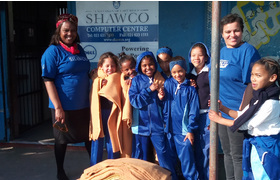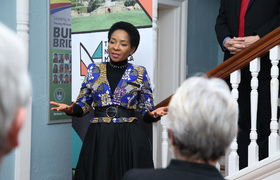UCT’s 2020 Mandela Rhodes scholars
07 November 2019 | Story Elske Joubert. Read time 10 min.
Seven University of Cape Town (UCT) students have been honoured among the Mandela Rhodes Foundation (MRF) Class of 2020, joining another 47 inspirational young leaders from across Africa.
The MRF was founded in 2002 by former president Nelson Mandela with the goal of building “exceptional leadership capacity” in South Africa and Africa.
The year-long programme offers postgraduates from across the African continent the opportunity to further their tertiary studies at any South African university. Successful candidates are not only given financial assistance, but also an opportunity to attend three residential workshops throughout the year.
They also benefit from networking with fellow scholars at regional gatherings, and are given access to mentors who are MRF alumni.
In order to qualify for this esteemed programme, applicants must demonstrate, among other criteria, strong leadership qualities and “reflect in their character a commitment to the four principles of education, reconciliation, leadership and entrepreneurship”.
Meet the scholars
Tariro Chatiza (Zimbabwe)
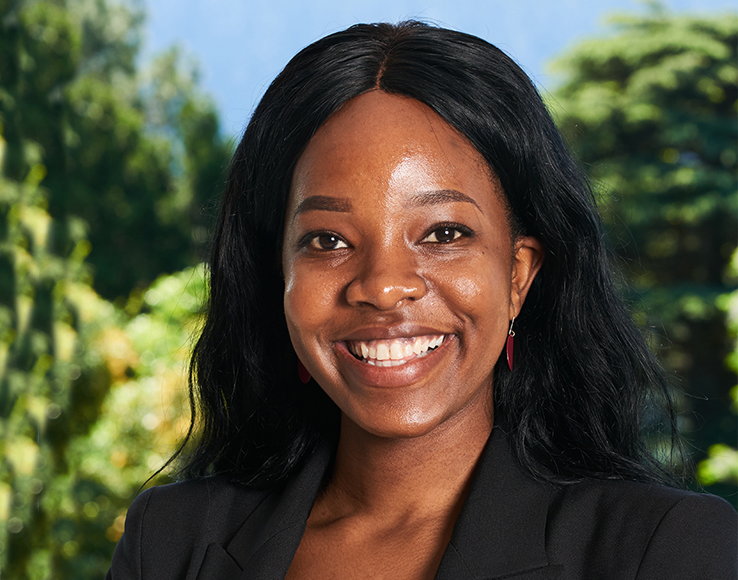
Neuroscientist Chatiza’s research at UCT focuses on mapping the development of a key brain cell using human brain tissue. She is a member of the Raimondo Research Group in the Division of Cell Biology in the Faculty of Health Sciences.
A self-proclaimed STEMinist, she is determined to address the gender disparities in science to make it more representative of the full spectrum of society. Through lecturing, tutoring and mentoring university students as well as high school learners through Ikamva Youth, she has become a role model for aspiring female scientists.
Transcending science, Chatiza is also a poet with a blog on Medium. She is a big fan of platforms such as Medium and YouTube, which she views as spaces where young black creatives can share narratives that have largely been underrepresented in mainstream media.
Her life goal is to be able to make a meaningful contribution to history and intellectual life.
Tatenda Kaponda (Zimbabwe)
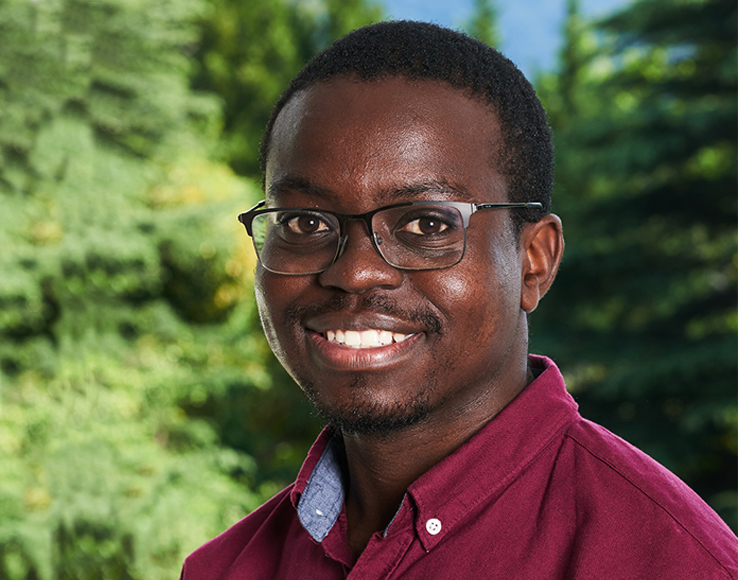
Kaponda is currently completing his MPhil in Human Rights Law as a Canon Collins Educational and Legal Assistance Trust scholar. He will enrol for an honours-level programme in Social Policy and Management at UCT in 2020.
The Golden Key Honour Society member is passionate about creating a safe world, via law and policy, in which children are enabled to realise their full potential. He has assumed several student leadership positions over the course of his studies and he received a community service award from his university residence. He is also an ardent supporter of the philosophy of servant leadership and believes in its potential to transform society.
He has worked at Red Cross War Memorial Children’s Hospital, ChildSafe South Africa, and The Justice Desk as an intern. He plans on starting a non-governmental organisation focusing on human rights education and rural development in Zimbabwe. Together with a colleague, he is currently working towards a project aimed at improving mental health literacy in South Africa.
Sister Kashala (Namibia)
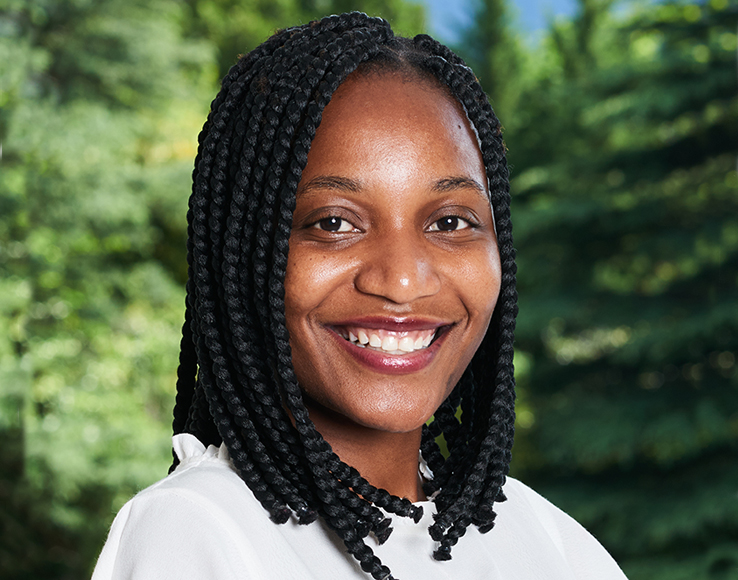
Kashala holds a BSc in Construction Studies and a BSc Honours in Quantity Surveying, and is currently completing her MSc in Property Studies at UCT.
With a passion for uplifting young people in rural areas, she is the founder of Tekula, which means “to nurture” in her native language Oshiwambo, and which strives to bridge the gap of access to opportunities between urban and rural communities via mentorship programmes, motivational events and prizegiving ceremonies.
Kashala is also passionate about housing and spatial justice, which was the main driving factor in applying for an MPhil in law. She hopes to find the balance between the redevelopment of dilapidated buildings and justice for illegal occupants.
As a construction and property professional, she believes that studying law will add real value to her suite of skills, especially in respect of her pursuit of spatial and housing justice. In 2019, she received the Engineering and Built Environment Special Faculty Award and was also selected as a Mandela Washington Fellow, a flagship programme of the Young African Leaders Initiative.
Hlumelo Marepula (South Africa)
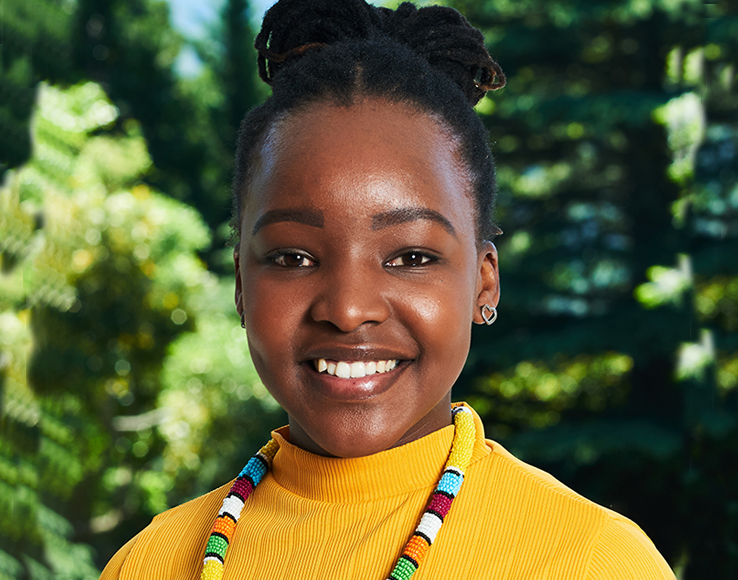
Marepula will study towards her civil engineering honours degree at UCT. Her research will focus on water quality engineering.
She made her mark in the university space through her involvement with the UCT Global Citizenship Programme, which led to her taking on a lecturing role in a humanities elective for engineers, making her the first undergraduate student to fulfil such a role in the engineering department. The course explores the impact of the engineering profession on communities and how engineers can contribute to a socially just society.
This year, Hlumelo won the local “Falling Walls Lab” competition after presenting on her thesis topic, which explores the use of human urine to ultimately produce jet fuel. She went on to represent UCT and South Africa at the global finals in Berlin, Germany.
She believes in contributing to a sustainable future for Africa by embarking on research which not only tackles climate change, but has the potential to make Africa a global innovation competitor. She hopes to one day be instrumental in changing the face of the African aviation industry.
Nyasha Mashanda (Zimbabwe)
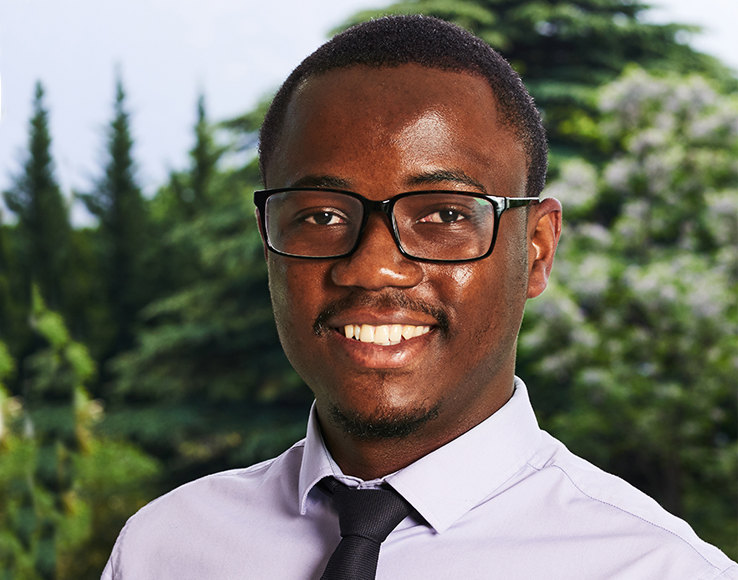
Mashanda is a registered final-year electrical engineering student at UCT who will graduate in April next year and pursue his master’s degree in data science in 2020.
The Mastercard Foundation Scholarship awardee is passionate about leadership because he believes that Africa will only thrive when there is a collective drive among Africans to become better leaders in their societies. In 2019, Mashanda was awarded the Mastercard Entrepreneurial Fund to start a biogas social venture in rural Zimbabwe, through which he hopes to encourage Zimbabweans in rural areas to use alternative sources of energy in an effort to reduce deforestation rates.
During his undergraduate degree, he tutored high school learners in informal areas in South Africa, and mentored first-year university students.
Joshua Mirkin (South Africa)
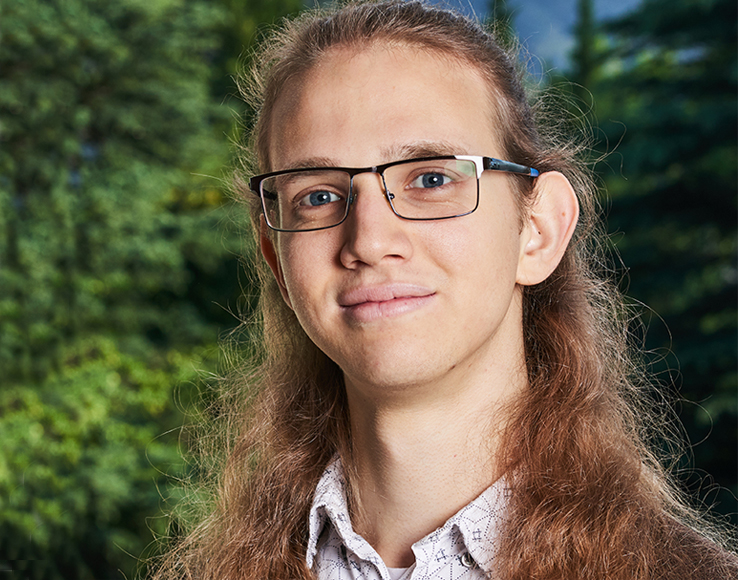
Mirkin is studying towards a master’s degree in oceanography at UCT. He was an orientation leader through both the Faculty of Science and the International Academic Programmes Office.
Through his studies, he wishes to gain a rounded, in-depth understanding of the physical world, and has an interest in examining the way humans interact with, adapt to, influence and change their environment. In addition to his studies, Mirkin is a peer mediator, student support officer, tutor and radio talk-show host. He previously held positions such as content manager at UCT Radio and logistics coordinator for the Thethani Debating League.
Nosisa Ngwenyama (Kingdom of eSwatini)
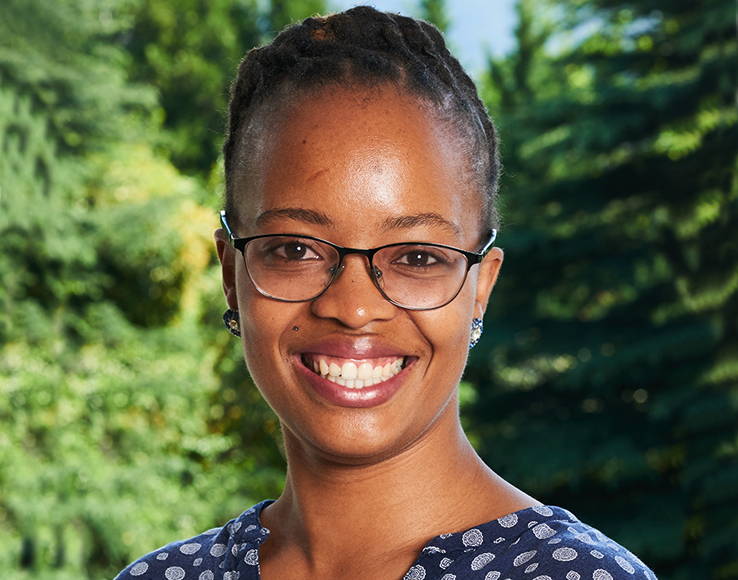
Ngwenyama holds a Bachelor of Arts degree from Bates College in the United States. She majored in politics, anthropology and women and gender studies. She is a gender studies master’s candidate at UCT.
She wrote her politics thesis on leadership as a barrier to the consolidation of democracy in South Africa, her anthropology thesis on striving for success through the Indigenous religions in eSwatini, and her Women and Gender Studies thesis on the commodification of lobola and its impacts on gender relations among the Swazi, Sotho, and Shona. She completed all three in the four years at her undergraduate institution.
Since graduating in 2016, she has worked in fundraising , marketing and advertising. She is still actively involved in volunteering for the United World Colleges (UWC) eSwatini National Committee, which helps to place and fund emaSwati to pursue their education at any of the 17 UWC colleges around the world.
 This work is licensed under a Creative Commons Attribution-NoDerivatives 4.0 International License.
This work is licensed under a Creative Commons Attribution-NoDerivatives 4.0 International License.
Please view the republishing articles page for more information.









